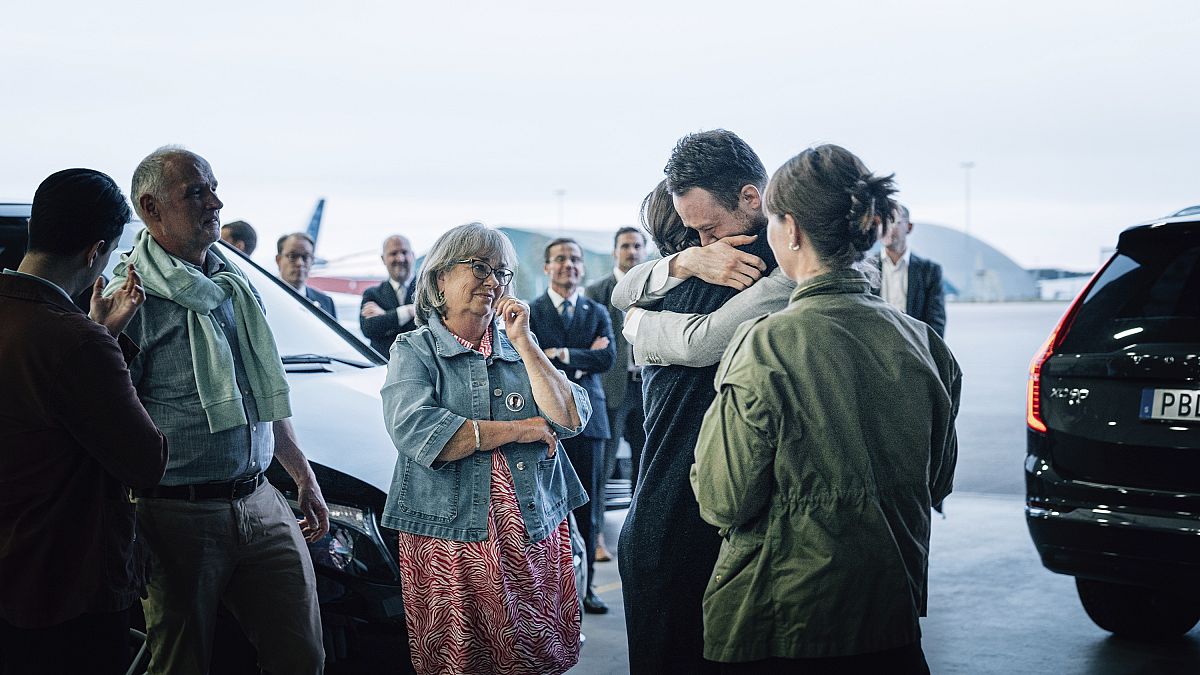Two Swedish citizens, European Union diplomat Johan Floderus and Saeed Azizi, were released by Iran in exchange for Iranian national Hamid Nouri, who was convicted of war crimes for his involvement in the 1988 mass executions in the Islamic Republic. Floderus and Azizi were reunited with their families in Stockholm after landing in the country. The prisoner swap was met with joy as Sweden welcomed back its citizens. Floderus, who worked for the European External Action Service, was arrested in April 2022 at Tehran airport, while Azizi was sentenced to five years in prison by Tehran’s Revolutionary Court earlier this year on charges of “assembly and collusion against national security.”
The prisoner exchange took place on Saturday and marked the return of Floderus and Azizi to Sweden. They were met at the airport by Sweden’s prime minister and foreign minister, who greeted them with warm welcomes. Hamid Nouri, who was convicted of war crimes in 2022 for his role in the 1988 mass executions in Iran, was released in exchange for the two Swedish citizens. The Stockholm District Court sentenced Nouri to life in prison for his involvement in the executions, identifying him as an assistant to the deputy prosecutor at the Gohardasht prison near Karaj.
The 1988 mass executions followed the end of Iran’s long war with Iraq, with thousands of individuals being executed. Iranian opposition group Mujahedeen-e-Khalq, heavily armed by Saddam Hussein, attacked Iran after a UN-brokered cease-fire was accepted by Iran’s then-Supreme Leader Ruhollah Khomeini. The executions, reportedly carried out on Khomeini’s orders, have never been fully acknowledged by Iran. Floderus’ family revealed that he was detained at Tehran airport in April 2022 when returning from a holiday with friends, making his case another instance of Tehran using foreigners for political negotiations.
Azizi, a dual Iranian-Swedish national, faced a lesser-known case compared to Floderus. In February, he was sentenced to five years in prison by Tehran’s Revolutionary Court on charges of “assembly and collusion against national security.” Azizi’s case was reported by the group Human Rights Activists in Iran, which also noted that he has cancer. The release of Floderus and Azizi in the prisoner swap marked a turning point in their ordeal and brought them back to their families in Sweden, away from the political tensions that had put them in the center of an international negotiation.










